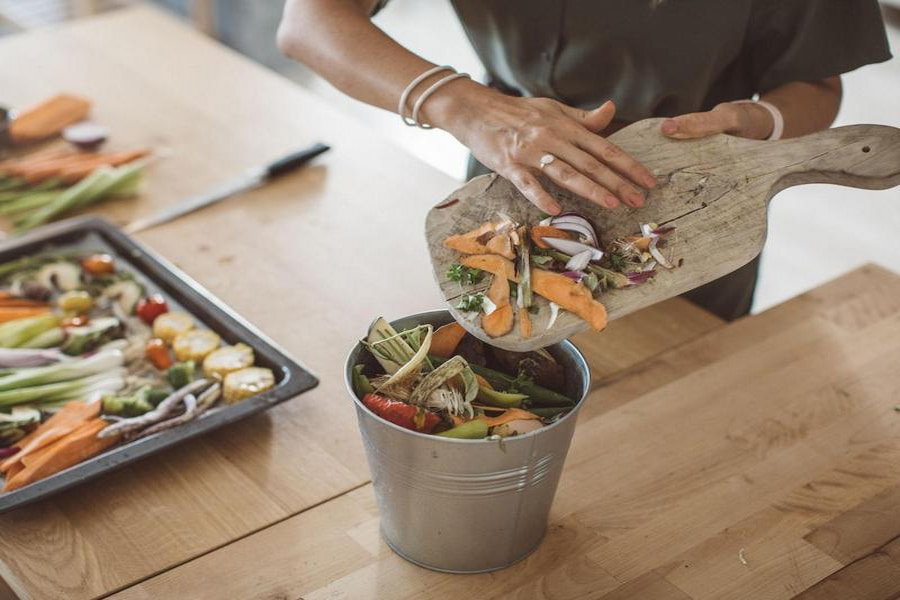In addition to wasting the water and various other resources needed for growing food, food waste increases the release of greenhouse gases. Finding strategies to cut down on food waste during the day can assist an individual avoid adding to the issue, even though the average customer does not contribute significantly to environmental pollution in comparison to major organizations? Learn how to cut down on food waste at home, at school, and how to make use of fantastic skip hire services at the cheapest skips hire while travelling by reading this article.
Don’t Overspend
Cutting back on purchases can be one of the easiest methods for consumers to prevent food waste. If the family is unable to consume all of the food, a full refrigerator may result in food waste even if it might appear nice. Individuals may avoid overspending and reduce waste if they make a few shorter weekly trips to the grocery shop instead of a single, longer one.
Understand How to Keep your Food Fresh
Use the first-in, first-out rule to prevent food from going bad in the refrigerator or cabinets. As goods get closer to their expiration dates, new food items slide behind them and become more noticeable. Organise the refrigerator by placing sealed raw meat and fish on the bottom shelf to prevent dripping as well as ready-to-eat items, like leftovers, on the top shelf. Keep vegetables and fruits in a different drawer.
Recognise “use by” and “Best Before” Dates
The ‘use by’ date on food packaging indicates whether the product is safe to consume. Perishable items including dairy products, cold meat, and prepared meals typically have a use-by date. These can be bought when and in the quantity required to prevent food waste. It’s wise to avoid stockpiling. Compared to use-by dates, “best before” dates are more flexible. Foods like pasta, lentils, and dried beans might be safely ingested after this date, however, their quality might have declined (for instance, flavour, colour, & texture changes). To determine the quality of meals bearing these labels, we should only need to rely on our senses.
Make a Shopping List Every Time
Purchasing food which is already in the house may end up creating more waste. Making a grocery list before heading to the market and taking stock of the food in the house might aid consumers avoid buying more food and reducing waste.
Create a Menu Every Week
Some individuals may find that creating a weekly meal plan helps them manage their food consumption and reduce waste. A person can make a precise grocery list by using online resources or cookbooks to assist plan their meals for the week. Having a weekly plan can help some individuals avoid food waste and lessen the amount of guessing surrounding meals, but it can take a few weeks for every family to get its menu just right.
Make Compost
Peels from vegetables don’t have to be wasted either. Composting in your backyard is a fantastic method to keep food particles out of the trash and give your garden nutrients. Additionally, there are tiny composting pots which you may keep at home.
Record the Foods that have Gone Bad
A person may identify items they might decrease their intake of by writing down the kinds of foods which spoil. For instance, purchasing fewer oranges could be the answer when somebody observes themselves discarding a lot of them as they decay. Purchasing larger bags of vegetables instead of one or two pieces could appear more cost-effective, but if someone often discards some of what’s inside, they won’t save money.
Freeze Extras
Foods can be preserved for later use & kept from rotting by freezing them. The shelf life of several fresh fruits and vegetables is increased as well as waste is decreased by freezing them. Other things, like bread, meats, and additionally some cooked dishes, may also keep well in the freezer. It’s particularly useful to freeze things like herbs which individuals use less frequently. Freezing extra fresh produce while it’s in season locally will assist people who want to eat healthier meals and avoid having to buy it from far away when it’s out of season.
Final Words
Even while the typical consumer does not pose the biggest ecological hazard, it is nevertheless imperative that customers take action to lessen their negative environmental impact. Reducing food waste might have a significant personal impact and contribute to a future where everyone has access to better food.
Visit Playblooket for more insightful blogs.

